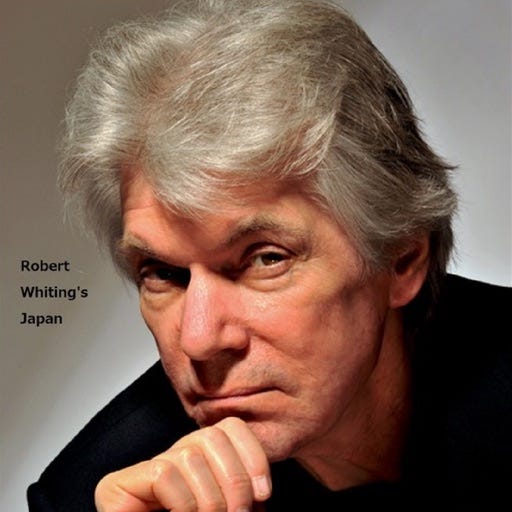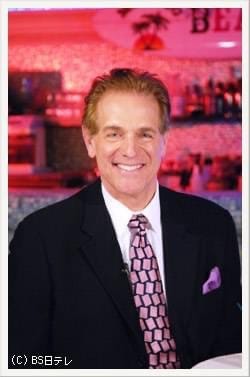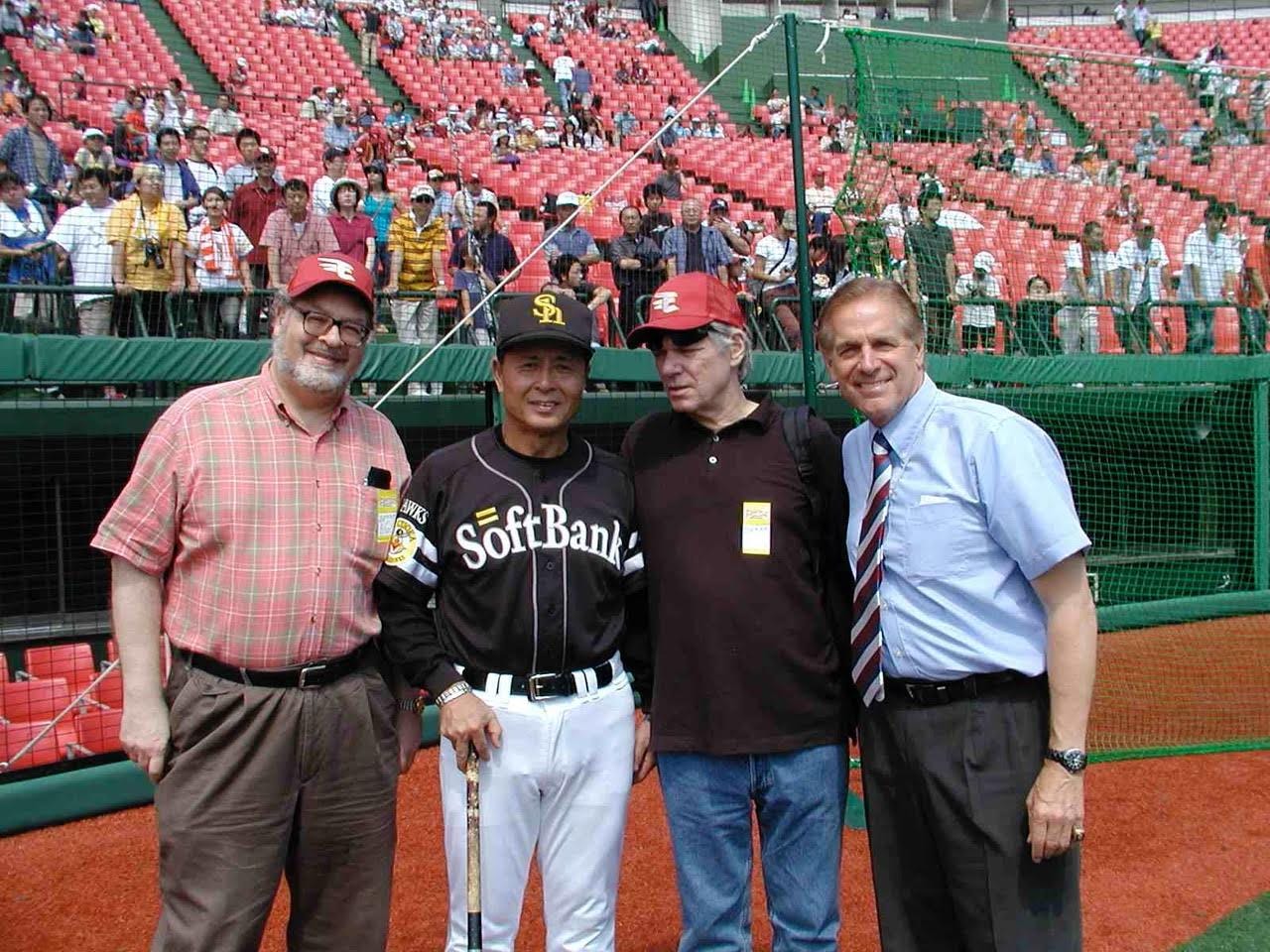TOKYO — I learned with sadness of the passing of Marty Kuehnert, a well-known figure on the sports scene in Japan — entrepreneur, journalist, educator, restauranteur and front office sports executive. Marty passed away in early November after complications from open heart surgery, leaving wife Kyoko and daughter Vivian, as well as adult children from earlier marriages.
At the time of his death, the Sendai-based Marty was serving as an adviser to the pro baseball Rakuten Golden Eagles of the NPB’s Pacific League as well as Senior Adviser to General Manager of the pro basketball Sendai 89ers of Japan’s B League. Many people remember him from his days as affable owner/operator of The Attic sports bar and Attic Jr. in Kobe, as well as Legends sports bar in Roppongi in Tokyo.
Longtime friend and freelance writer Mark Schreiber first met Marty at the Osaka World Exposition in 1970, where Marty, working as a U.S. Pavilion guide, lived in a neighboring apartment.
“Whenever I happened to be in Kansai,” Schreiber said, “I would make a beeline for his popular sports bar, The Attic, on Ijinkan-dori. It was a fun place with good food in big American-size portions. He went to extreme lengths to procure a functioning Wurlitizer jukebox with selectors on each table, so without even getting up you could slip in a ¥100 yen coin and select Rock and Roll classics. The whole shop was a tribute to 1960s college-town Americana right out of the movie ‘Animal House,’ with peanut shells discarded all over the floor and panty raid trophies hanging from the rafters.
“The Attic made Marty an overnight celebrity in Kobe. Then the Hanshin Earthquake in January 1995 dealt a terrible blow to the city and his enterprises. After spending several years in Tokyo, Marty eventually moved to Sendai — where an even bigger earthquake struck in March 2011. Marty had come to love Sendai by that time, and his commitment to its recovery endeared him to the locals. I expect many thousands of people with whom he encountered over the years there will mourn his loss.”
Marty was a star athlete growing up in Los Angeles, an All-City catcher whose chances for a potential pro career were derailed by a back injury at Stanford University where he also played. While at Stanford he participated in a student exchange program with Tokyo-based Keio University and later became general manager of the Lodi Orions, a Class A minor league team in the California League, a job he performed so well he was named California League Executive of the Year in 1973. This led to a position with the Kyushu-based Taiheiyo Club Lions of the Pacific League as director of sales and promotions.
He went on to become involved in sports media, broadcasting games in his fluent Japanese, writing for Japanese newspapers, as well as a baseball newsletter sponsored by Descente. He was was also a sports columnist for the Japan Times for several years. He authored several sports books and, for a time, had his own TV show. He was known for his incisive and sometimes biting commentary on the training excesses of Japan’s pro yakyu, ruled as it was by aging corporate shoguns who had little baseball expertise and used their teams primarily to publicize their companies.
He later went on to be the president and part-owner of another minor league team, the Birmingham Barons, during the time Michael Jordan played there.
Kuehnert achieved national prominence in 2004 when Hiroshi Mikitani, founder and CEO of the Rakuten Golden Eagles, a new entry in the Pacific League, as part of the NPB realignment that year, asked Kuehnert to become the general manager of the franchise, making him the first foreign GM in the history of Japanese baseball.
“If we have new blood in the league, with innovative ideas, we'll be able to turn the industry around,” said the Golden Eagles’ billionaire owner, Hiroshi Mikitani, a 39-year-old Harvard MBA who founded Rakuten, Japan’s most successful online shopping site. “One of the most important issues is to bring in someone who doesn’t have a connection to the old Japanese business community.”
The new franchise, assembled from the leftovers of a merger involving the Orix and Kintetsu franchises, quickly became a feel-good story. Kuehnert introduced U.S.-style marketing techniques and hired a manager and coaches known for their disdain of Japan’s infamous “boot camp” training methods. He also made many preseason media appearances to promote the team and the great change in Japanese baseball it purportedly represented. Ticket requests poured in, and to Mikitani’s delight, the price of Rakuten stock doubled.
Then reality set in. After an Opening Day victory, the Golden Eagles were lambasted 26-0 in their second game, setting the tone for the rest of the month. By late April the team was a humiliating 5-22, and Kuehnert’s handpicked cleanup hitter, former Montreal Expo Luis Lopez, was batting .202 with two homers.
As attendance waned, the popular daily Sports Nippon summed up the Golden Eagles by saying, “They can't hit and they can’t field.” Well-known sportswriter Jun Ikushima compared Rakuten with the 1962 New York Mets, with one difference: “They don’t have Casey Stengel.”
Mikitani, humiliated, then took action. After having his head shaved in a traditional Japanese act of self-purification, on April 30 he announced the demotion of Kuehnert to “adviser,” and made key changes in the team’s coaching ranks. Rakuten officials explained that Kuehnert “lacked the connections needed both in and outside of Japanese baseball to build for the future.”
It was an odd accusation to make of a man who had been living and working in Japan for over 30 years at the time and was well acquainted with top MLB people.
It was a sudden, very public rebuke, and some observers smelled discrimination. “When the blame game starts, the gaijin [foreigners] had better take cover,” said Jack Gallagher, then sports editor of The Japan Times. “Did anybody really expect an expansion team — with no proper acquisition of talent via a true expansion draft — to be respectable in its first season?”
It was a valid point, especially when it became publicly known that Kuehnert had been denied powers that most GMs on other teams enjoyed: He had not been made a company director, could not attend league or players’ association meetings and had no say in the budget — which was a measly $22 million, the lowest in Japan. There were reports of friction, ego clashes and arguments with higher-ups. In the end, ironically, it seems that Rakuten was no different from many other organizations in Japan when faced with a reform-minded foreigner.
Japan Times veteran baseball columnist Wayne Graczyk complained bitterly in print that Kuehnert was not given a fair shot.
He quoted Hokkaido Nippon Ham Fighters manager Trey Hillman as saying of the changes, “I think it is an absolute shame to have made such a drastic shakeup so soon to the Eagles front office and field staff. It was pretty amazing what the franchise was able to pull off in short time, none of which would have been possible without Marty. Nice thanks.”
“All in all, it’s a shame,” Kuehnert said when it was all over. “I believe I could have built a decent team. It was too good to believe when I got the job. And, as they say, if it’s too good to be true, it usually is.”
The Rakuten Golden Eagles went on to finish 51.5 games out of first place. It took them years to climb into contention and a decade to finally win a pennant and there were frequent reports of interference in day-to-day managerial decisions by their strong-minded and impulsive owner.
Kuehnert remained in Sendai where he became an executive with the pro basketball 89ers and accepted a position as vice president of Sendai University, a post he held until his death, teaching sports management and sports media classes. He also represented the interests of former Hanshin Tigers star Randy Bass.
“Along with his sharp mind and fluency in Japanese, Marty had an uncanny ability to grasp trends in sports in the U.S. and find ways to introduce them here,” said Schreiber. “In that sense he was a true business pioneer. He conceived and then built numerous cultural bridges that are still standing today.
“He had a great respect and empathy for both amateur and professional athletes and encouraged the adoption of sports medicine in Japan. Marty was a big-hearted, caring person, and many athletes’ careers were prolonged by Marty’s advice and intervention.”
I have known Marty personally since the 1970s and was always impressed by his energy and his unflagging zest for life, as well as his love of all sports (with the notable exception of soccer, which he thought a pointless exercise and gleefully lambasted in print). He set a good example on how to live an active, productive life. I will miss him and so will the many others whose lives he touched while he was here on earth. My deepest sympathies to his wife, Kyoko, and other family members.







Thank you for writing this piece for our dear friend. Hope he’s regaling Babe Ruth and Hank Aaron with his stories upstairs.
Marty was an outstanding citizen and will be missed by all. Thanks for the wonderful tribute. RIP Marty-san and my condolences to Kyoko and Vivian and all others who have lost their loved one.